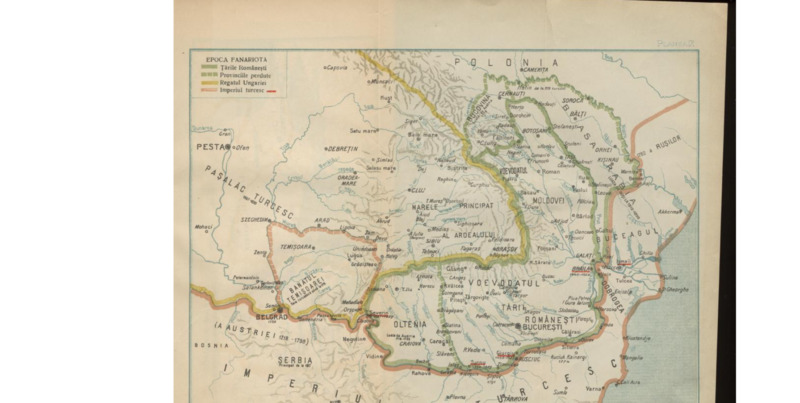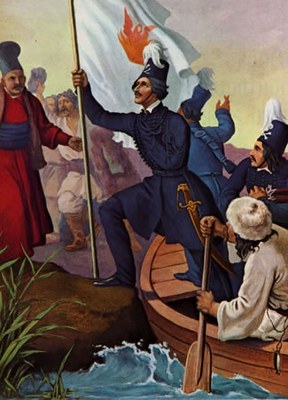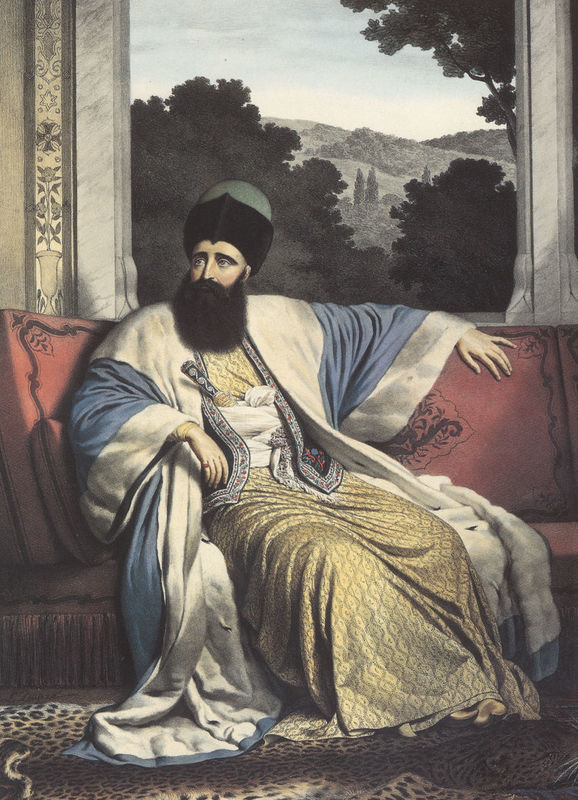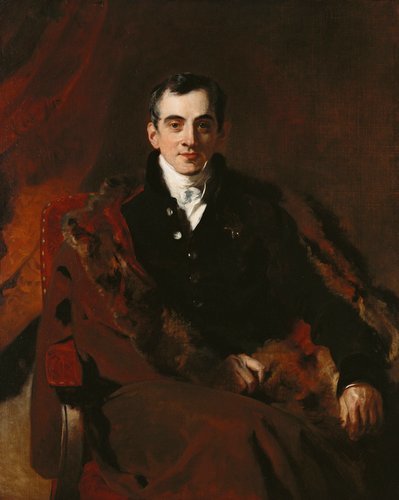Preserving a People: the Greek Diaspora
In a war so heavily influenced by international players, the role of the Greek diaspora in the development of a Classicist, pro-Greek Europe cannot be ignored, nor its importance overstated. Since the fall of Byzantium, the promise of economic opportunity and education had drawn Greeks away from their homeland and towards Western Europe and Russia. By the 19th century, many Greeks had found prosperity as merchants as well as in academia. With this success, particularly in the academic sphere, diasporic Greeks laid the foundation for philhellenism throughout Western Europe by promoting the study of the ancient world and emphasizing Greek contributions to European history and culture. While there was no single catalyst for the War of Independence, the strengthening of the Greek sense of national identity was largely due to the Enlightenment ideas and Classicism promoted by the Greek diaspora, and that growing sense of nationalism was one of the major causes of the war.
The emergence of the diaspora dates back as far as 1453 with the fall of Constantinople (Ottoman Turkish: قسطنطينية; Greek: Κωνσταντινούπολις) - and with it, the rest of Byzantium - to the Turks. Byzantine Greeks, most of whom were Orthodox Christians, began to emigrate westward throughout the following centuries, drawn away from their homeland by economic prospects and academic opportunities in the predominantly Christian environment of the West. Greeks began to fill prominent roles in the trading economies of many Western and Russian cities, and in the Balkans, Greek even became the lingua franca of trade as a result of the relative prosperity of Greek merchants and their far-reaching networks.
While diasporic communities began to evolve apart from one another and adapt to the cultures that harbored them, many Greek academics in the 16th and 17th centuries helped maintain a sense of Greek national identity within their communities by emphasizing the importance of their ancient roots. Classical education started to become more and more popular throughout Europe as historiography increasingly included the study of ancient cultures rather than only Christian history, and the idea that Greece was the birthplace of Western culture became more widely accepted among European scholars. With ancient Greek culture rising in popularity, so grew the sense of national pride within the diaspora.
However, while Classicism had an impact on Greeks living in the mainland, it was Orthodox Christianity that best preserved a sense of national identity among those Greeks that remained under Ottoman rule. The Ottoman Empire was primarily Muslim, so Christianity, itself a remnant of the Byzantine Empire in the region, became the primary way through which Greeks found community, no matter where they lived within the empire. Christians living under Turkish rule had to pay higher taxes and held inferior status compared to their Muslim counterparts, and their treatment was often subject to the whims of the sultan or those of the political and military leaders, called pashas (Ottoman Turkish: پاشا). Thus, since most Greeks were Christian, religion became intertwined with nationalism and provided a foundation upon which Greeks in the Ottoman Empire could build their movement.
Above is a colored lithograph of Michael Soutzos (Greek: Μιχαήλ Σούτζος), the Greek ruler of the Danubian Principality of Moldavia from 1819 until 1821. Soutzos, a white man with a large, black beard, is depicted wearing lavish robes in the Ottoman style, lounging on a divan in front of a scene of the countryside, and resting his feet on a leopard skin - all indications of his high status as a Phanariot in the Turkish hierarchy.
The Phanariots (Greek: Φαναριώτες), named for the lighthouse district of Constantinople in which many of them lived, were a group of upper-class Greeks who held powerful positions in the Ottoman Empire. While most were not Muslim, Phanariots worked in the sultan’s government and even ruled regions within the empire such as the Danubian Principalities of Moldavia and Wallachia, as was the case with Soutzos. The Phanariots were less inclined to support Greek independence because of their upper class status, though many eventually joined the side of the Greeks as it became more clear that their status was heavily dependent on the views of their Turkish counterparts.
Due to the powerful positions that many Greeks held in other European countries, the Greeks of the diaspora were able to organize politically much more effectively than those remaining under Ottoman rule, many of whom lived in rural areas without easy access to education or lines of communication. For example, during the late 18th and early 19th centuries, Greek publications began to emerge in many European cities, thus bringing more attention to political ideas about Greek independence from the Ottomans. In Russia in particular, some diasporic Greeks held positions in the nobility and were thus able to drum up support for the War of Independence among the upper class by appealing to their shared religion - Orthodox Christianity - and their hope to return to an era of Orthodox power in the formerly Byzantine region.
The above portrait shows Ioannis Kapodistrias (Greek: Ἰωάννης Καποδίστριας), the foreign minister of Russia at the time of the Greek War of Independence. He is pictured here wearing a fur-lined coat and a star that likely represents the Order of St. Alexander Nevsky - a Russian chivalric order formed to commend military bravery. Kapodistrias would go on to become the first head of state for independent Greece.
Though himself a Greek statesman who had served Alexander I since 1809, Kapodistrias did not think highly of the Greek diaspora because of the way in which they supported Greek independence. The role that the diaspora played in helping start the War of Independence was mostly an organizational and financial one; many Greeks in the diaspora were Enlightenment idealists and aimed to spread ideas about nationalism and self-determination, and many also provided funding to revolutionaries on the ground. This presented a stark difference from the direct action taken by rural Greeks living in the Morea during 1821, and Kapodistrias saw the lack of substantial support beyond economic aid as rich members of society taking advantage of the popularity of Greek national identity without having to actually live there - with the exception of those who provided funds for education, whom he respected.
While aid was indeed sparse at the very beginning of the war, by 1823 many Greeks living in cities in Europe and America had formed committees with the purpose of sending money and volunteers to Greece. Additionally, members of the Greek diaspora helped the revolutionaries by smuggling arms and provisions to Greek troops, gathering information, sabotaging Ottoman naval vessels, and more. It is important to remember, though, that the diaspora was far from homogeneous; for example, it would be incorrect to assume that actions taken and opinions held by Greeks in Venice would be the same as those of Greeks living in Paris, as their exposure to the revolution and the means in which they could help would differ according to their financial and political experiences as well as their physical locations. There were still also many intra-community divisions between those who actively supported the revolution and who seemed not to, and all throughout the War of Independence, community members who appeared to side with the Turks received libel and slander from their fellow Greeks.

All the Sultan’s Men : The Ottoman Empire and its Greeks

From Russia, With Love?: The Greco-Russian Connection


